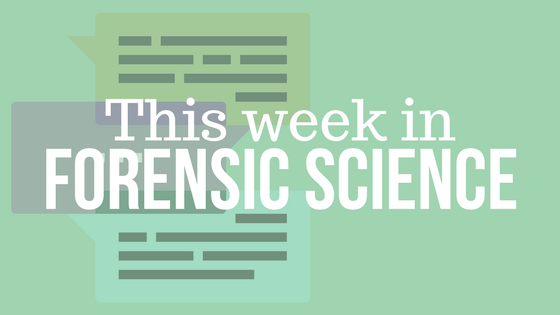No one has hours to scour the papers to keep up with the latest news, so we’ve curated the top news stories in the field of Forensic Science for this week. Here’s what you need to know to get out the door!
DNA Links Colorado Murders from 34 Years Ago to an Inmate (The New York Times – 8/10/2018)
SThe killings haunted the police officers who responded to the scenes, the authorities would later say, and for decades detectives in the two communities where the murders occurred, Aurora and Lakewood, Colo., pursued leads and developed theories. Some of them retired or died, but the search for answers eluded them — until last month.
Online Genealogy Has Created an Unregulated Forensic Database for Police (ABC – 8/12/2018)
- In a dizzying span over the past few months, some of the nation’s most frustratingly unsolvable cold cases have suddenly been, well, solved. These breakthroughs have come thanks to DNA evidence and a new field of study known as genetic genealogy — pioneered by a group of passionate and largely unpaid hobbyists.
‘Golden State Killer’: New Charge Links Alleged Murderer to 1970s Crime Spree (Rolling Stone – 8/13/2018)
- The murder of Claude Snelling is the 13th murder DeAngelo has been accused of thus far, and his earliest yet; he’s also accused of committing nearly 50 rapes between northern and southern California from the mid-1970s to 1986, and evading law enforcement for over 40 years.
Is Reproducible Science Well Understood in Forensic Science? (Forensic Magazine – 8/14/2018)
The University of Dundee has developed a survey for the forensic community to determine what the experiences of reproducible science and data sharing are.
Mandatory DNA Collection on Felony Arrests Yields Results (NUVO – 8/14/2018)
Eight months after a law requiring state police to collect DNA samples from anyone arrested on a felony charge took effect, the policymakers behind the measure are praising what they see as positive results.
Boston Vet Uses Forensics to Help Police Track Down Animal Abusers (Boston 25 News – 8/14/2018)
She did a fellowship at the medical examiner’s office in Boston to learn more about the forensics background she’d need and how to do a more advanced and detailed necropsy. Smith-Blackmore has since opened her own business in Boston, Forensic Veterinary Investigations, and gets calls from lawyers, vets and police departments from across the country.
WOULD YOU LIKE TO SEE MORE ARTICLES LIKE THIS? SUBSCRIBE TO THE ISHI BLOG BELOW!


